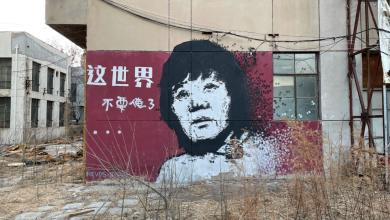Let’s Talk Intersectional Food Politics
Over the past several years, the local foods movement, organic foods movement, etc. have all gained a tremendous amount of momentum and support in various communities. People have made lists and dispersed them to the masses in various forms declaring what you can and should do to be more green or sustainable. These lists often include actions such as eating organic foods, avoiding processed foods, buying your foods from a local farmer or vendor, etc.
Often, there is a lot left out of this conversation, though, and many of the things that one is told they should do are reduced to simply utopian ideals—fundamentally out of reach for countless people.
Instead of acknowledgement of the myriad of ways in which different populations are affected by a lack of access to healthy, affordable food, many people who are a part of these communities are vilified in the name of being “green.”
However obvious it may seem to many of us who are familiar with the basics of intersectionality, some people just don’t understand because they live in a bubble of privilege.
Class, race and gender (amongst other varying statuses, which inadvertently build off of one another) are closely intertwined with food politics. Thankfully, as the conversation surrounding food accessibility and the subsequent politics grows, there is a push towards an intersectional approach. However, I still see that the discussion is lacking. The concept of the “food desert” has become a starting point for a discussion about the poorest neighborhoods.
These neighborhoods are disproportionately comprised of people of color (and subsequently single woman-headed families) and often don’t have grocery stores at all within reach, let alone a health food store which carries organic or locally sourced foods.
Even if/when a store opens up in these neighborhoods, the prices are often astronomical, even in comparison to many other grocery stores in wealthier neighborhoods. Unfortunately, although many people have an understanding of these concepts making their way into the privileged, mainstream conversation, they don’t really apply them in their everyday lives.
There needs to be a core understanding within the food sustainability and politics movement that privilege on the basis of race and class is central to one’s ability to maintain such sustainable practices as eating organic or unprocessed.
It’s not enough to say “you need to eat organic” or “you need to cut out processed foods;” you need to look at the situations that push people into places where those aren’t possible for them.
For instance, if a single mother of two who works full time has to come home from a long day at work and make dinner for her and her children, do you think it will be easier for her to make a meal from scratch or to put together something more processed that will likely take, at most, half of the time?
Environmentalists and sustainability advocates, then, should take an approach which criticizes the circumstances which have placed that woman and her family in such a situation, rather than point the finger at that woman.
These issues are systemic and, by and large, can’t be attributed to the individual. While several ecofeminists have tackled many of these issues head-on, people are continuing to reuse these tired, individualistic, privileged arguments that, quite frankly, aren’t at all applicable.
And on that note, to prove that the shaming of groups who aren’t as privileged as the white upper class elite, I leave you with this short video produced by the City of Santa Monica.
As one of the wealthiest cities in California, Santa Monica exists in a very special pocket of privilege. In the video, we see the white side of it all in almost every respect, to the point that it is borderline offensive. While the producers of this video likely had good intentions, at the end of the day, this lifestyle is almost exclusively available to the income bracket under which most of Santa Monica’s residents fall.
It’s important to note, however, that what I’ve said isn’t to discount the efforts of environmentalists and/or sustainability advocates but simply to point out that they shouldn’t vilify those who are part of communities where the sustainability advocates’ ideal lifestyle is often inaccessible.
It is not only welcomed, but also encouraged, to pursue a sustainable lifestyle, but it’s important to check your privilege while you’re advocating for it.
What is available to you may not be available to the next person for whatever reason, and you should be comfortable with that.
Instead of pointing the finger at that person for not being able to do what you can in terms of sustainability, it would be much more productive to help make those sustainable options available and accessible for more people.




